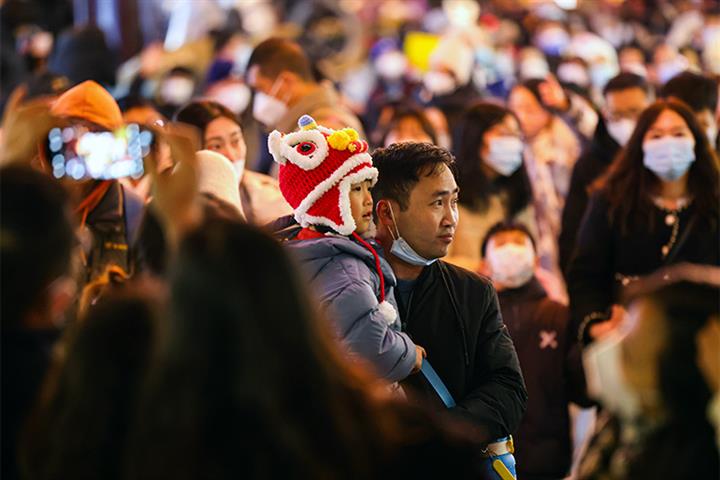 Most Chinese Consumers Are Willing to Spend on Travel, Films, Survey Says
Most Chinese Consumers Are Willing to Spend on Travel, Films, Survey Says(Yicai Global) Feb. 27 -- Over 90 percent of Chinese people will spend on items that bring ‘pleasure,’ such as travelling and going to the movies, now that the country has relaxed its pandemic prevention measures while large-ticket items such as property and cars are low on the agenda, according to a recent survey.
Just over 91 percent of people polled said they will spend on travel, while 90.4 percent said they will treat themselves to films and entertainment, according to a survey of over 1,000 people carried out by Yicai Global this month.
Some 60.2 percent of respondents have plans to travel around the country this year, and 32.3 percent intend to travel both in China and abroad this year, according to the poll. More than half have a travel budget of between CNY10,000 (USD1,436) and CNY20,000.
While 70 percent said they would prefer to pay under CNY100 (USD14) for a trip to the movies, according to the poll which divided consumer spending into five main categories of catering, travel, luxury items, real estate and cars.
Spending habits have changed as usually dining out is the most popular item, but this time only 45 percent of people said they will spend on eating out. But expenditure on a meal out did increase to CNY500 (USD72) from CNY300.
People are paying more attention to product quality in the past and becoming more rational in their spending, the survey said. A high price-to-quality ratio is key to persuading people to make a purchase.
Some 60 percent said they would like to treat themselves to luxury goods, but most of them had a maximum budget of CNY20,000 (USD2,870) which is not high in the luxury retail market.
Only 27.5 percent of those surveyed said they will be buying a new car, indicating that it will still take a while for the auto market to recover.
And less than 3 percent said they are looking to buy property. Although demand for real estate is weak at the moment, this is normal in the sector which has low-frequency consumption, industry insiders said. Also the costs are significantly higher so the measurement should not be the same in that for ordinary consumer goods.
Just 10 percent said they will spend on clothing and electronic goods. Interior decoration was also less than 3 percent due to the tepid demand for housing and electronics.
Editors: Shi Yi, Kim Taylor